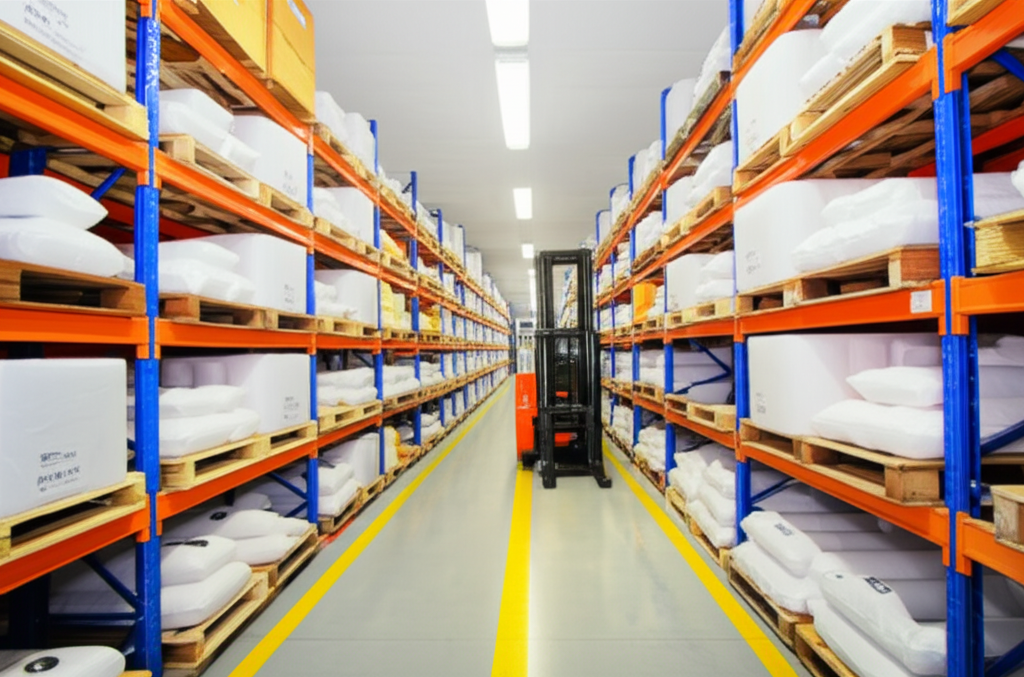The CO shift process remains critical for methanol synthesis in coal-to-chemicals industries, particularly when handling syngas with high CO concentrations exceeding 40 vol%. Traditional approaches, whether multi-stage adiabatic systems or existing isothermal technologies, face persistent challenges. Adiabatic reactors present significant safety risks with frequent thermal runaway incidents. Conventional isothermal units, while mitigating hotspots, create damaging steam pressure fluctuations exceeding 2.5 MPaG during catalyst deactivation phases, necessitating costly high-pressure steam infrastructure. This volatility jeopardizes stable methanol plant operations.

A breakthrough configuration revolutionizes CO shift processing. An innovative variable-area isothermal reactor eliminates steam instability while accommodating catalyst aging. The core advancement features two independently controllable heat-exchange tube bundles integrated within a single reactor vessel. The first tube set (Group A) possesses a heat-transfer area equivalent to 15-60% of the second set (Group B). This design enables dynamic adjustment of active cooling surface area throughout the catalyst lifecycle without disrupting steam pressures.
Optimized gas handling further enhances efficiency. Upstream syngas undergoes cooling to 215-225°C, separating condensate before strategic splitting. Approximately 45-55% bypasses conversion as non-shifted synthesis gas. The remaining 45-55%, designated for processing, is heated to 250-265°C with water/dry gas molar ratios adjusted to 0.65-0.75. After passing through a guard bed for contaminant removal, this stream enters the variable-area reactor.
During initial catalyst operation, both tube groups actively remove heat, facilitating reactions at 280-295°C. This yields a shifted gas stream containing 3-5 vol% CO dry basis. Boiler water feeds both circuit groups simultaneously, generating consistent saturated medium-pressure steam at 4.0-5.5 MPaG and 250-270°C via direct heat exchange against reacting gases. Steam pressure remains steady, feeding into plant networks without surges.
A critical operational innovation involves real-time CO monitoring. When outlet concentrations exceed 5 vol%, indicating catalyst deactivation, the system adapts. Operators elevate reaction temperature by closing Group A's feed valve, deactivating the first tube set entirely. Concurrently, the feed gas preheat temperature rises to 265-280°C. Now, only Group B tubes actively cool the catalyst bed. Reduced heat-transfer area allows bed temperatures to climb to 295-310°C, sustaining effective conversion despite reduced catalyst activity remarkably maintaining outlet CO at 3-5 vol% without altering steam pressure.
The thermally conditioned outlet gas cools to 215-225°C before merging with the pristine bypass stream, ensuring ideal stoichiometry. The final synthesis gas mixture meticulously maintains H2/CO molar ratios between 2.1 and 2.3, perfectly suited for downstream methanol catalysts. Energy integration is maximized upstream via a low-pressure steam generator condensing excess moisture and downstream through waste heat utilisation superheating low-pressure steam.
Reactor engineering ensures operational reliability. A radial-flow catalyst bed houses intricately staggered vertical tube arrays, arranged in concentric rings and radiating lines with 30-150 mm optimized spacing. Tube distribution prioritizes uniform temperature control; critical peripheral zones and core sections incorporate Group B tubes maintaining sufficient cooling even when Group A is inactive. Strategic radial zoning and alternating tube types between adjacent lines prevent localized overheating while enabling straightforward catalyst handling during maintenance cycles.
Comparative data highlights transformative benefits. Facilities processing 85,000 Nm³/h syngas witness dramatically stabilized steam pressure profiles. Unlike conventional isothermal units imposing steam system pressure fluctuations beyond 2.5 MPaG and requiring equipment rated over 6.5 MPaG, this design sustains pressures consistently within a 4.0-5.5 MPaG band, eliminating infrastructure stress. Consequently, vapor drum design pressures decrease substantially, cutting reactor shell and connecting pipe thickness by approximately 30–40%. Initial capital expenditure falls significantly, with piping and vessels cost reductions estimated around $120,000 USD per installation alongside decreased catalyst volumes from partial bypass operation.
Further advantages materialize in daily operations. The single-stage configuration minimizes plant footprint and pressure drop versus multi-reactor trains. The elimination of front-end adiabatic converters prevents hazardous temperature excursions inherent with high-CO feeds extending catalyst service life expectancy beyond three years due to milder thermal conditions. Partial bypass operation reduces total catalyst loading substantially. Crucially, the avoidance of mid-to-late operational steam pressure adjustment, previously mandatory in legacy designs when escalating reactor operating temperatures, underpins unprecedented plant stability required for continuous methanol production.
This adaptive isothermal shift technology marks a paradigm shift. By resolving the fundamental contradiction between stable steam production and sustained conversion efficiency amid catalyst decay, it delivers superior operational robustness, enhanced safety, and reduced lifecycle costs for methanol producers relying on gasification-derived syngas. Its capacity to dynamically recalibrate internal heat transfer capacity signifies major progress in catalytic process engineering.
Manufacturing Facilities






Professional Export Experience
to Global Customers

1. 20 years of R&D, manufacturing and sales experience, serving customers in 60 countries and regions around the world;
2. Own R&D laboratory, pilot platform and large-scale production workshop, which can meet the audit requirements of global customers;
3. We can satisfy customers' perfect transition from small scale lab requirements (gram level) to commercialization requirements (hundred tons level).
A: We don't have Minimum Order Quantity, exact quantity should be provided before quotation for us to calculate the exact cost.
A: We don't provide free samples due to lots of request and expensive international courier's cost, we can deduct the sample charge after commercial order placed.
A: Our payment terms: Small or sample order: T/T IN ADVANCE. Commercial order: First order should be by T/T IN ADVANCE or L/C at sight, and following orders T/T 30~90days is acceptable subject to approval of credit application.